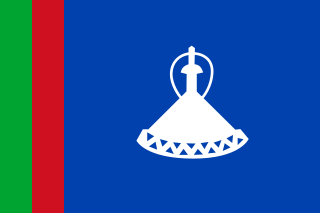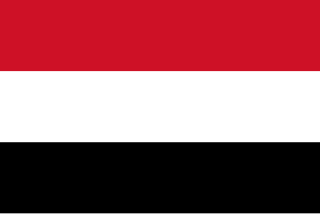
Arthur Stanley Wint OD MBE was a Jamaican sprinter. Competing at the 1948 and 1952 Olympics he who won two gold and two silver medals, becoming the first Jamaican Olympic gold medalist.
George Vincent Rhoden is a Jamaican retired athlete, winner of two Olympic gold medals in 1952.

Belize sent a delegation to compete at the 2004 Summer Olympics in Athens, Greece, from 13–29 August 2004. This was the Central American country's ninth appearance at a Summer Olympic Games. The delegation consisted of two track and field athletes: Michael Aguilar and Emma Wade; neither advanced beyond the first round of their events.

The Hon. Herbert Henry McKenley OM was a Jamaican track and field sprinter. He competed at the 1948 and 1952 Olympics in six events in total, and won one gold and three silver medals.

Lesotho sent a delegation to compete in the 1972 Summer Olympics in Munich, West Germany from 26 August to 11 September 1972. This was the African country's first time participating at the Olympic Games. Lesotho's delegation consisted of a single sprinter, Motsapi Moorosi. He competed in two events, being eliminated in the first round of the 100 meters, and advancing to the quarter-finals of the 200 meters.

Yemen sent a delegation to compete at the 2000 Summer Olympics in Sydney, Australia from 15 September to 1 October 2000. This was their third appearance at a Summer Olympic Games as a unified country. The Yemeni delegation consisted of two track and field athletes, Basheer Al-Khewani and Hana Ali Saleh. Neither advanced beyond the first round of their respective events.

Belize sent a delegation to compete at the 2000 Summer Olympics in Sydney, Australia from 15 September to 1 October 2000. This was Belize's eighth appearance at a Summer Olympic Games. The delegation sent by Belize consisted of two track and field competitors: Jayson Jones and Emma Wade. Neither advanced beyond the first round heats of their events.

Comoros sent a delegation to compete at the 2000 Summer Olympics in Sydney, Australia from 15 September to 1 October 2000. This was the Indian Ocean nation's second appearance at a Summer Olympic Games, following their debut four years earlier at the 1996 Atlanta Olympics. The delegation consisted of two track and field athletes: Hadhari Djaffar and Sandjema Batouli. Both raced in the 100 meters events, but neither advanced beyond the first round.

The Gambia sent a delegation to compete at the 2000 Summer Olympics in Sydney, Australia from 15 September to 1 October 2000. This was the African nation's fifth time competing at a Summer Olympic Games. The Gambian delegation consisted of two track and field athletes, Pa Mamadou Gai and Adama Njie. Neither advanced beyond the first round heats of their events.

Mauritania sent a delegation to compete at the 2000 Summer Olympics in Sydney, Australia from 15 September to 1 October 2000. This was the African nation's fifth time competing at the Summer Olympic Games. The Mauritanian delegation consisted of two track and field athletes, Sidi Mohamed Ould Bidjel and Fatou Dieng. Neither advanced beyond the first round of their respective events.

Sierra Leone sent a delegation to compete at the 2000 Summer Olympics in Sydney, Australia from 15 September to 1 October 2000. This was the African nation's sixth time appearing at a Summer Olympic Games. The delegation consisted of three competitors, two track and field athletes; Alpha B. Kamara and Ekundayo Williams; and weightlifter Joseph Bellon. Neither of the track athletes advanced beyond the first round of their events, while Bellon finished 16th in the men's under 77 kg event.

Jamaica competed at the 1952 Summer Olympics in Helsinki, Finland.

Swaziland sent a delegation to compete at the 2008 Summer Olympics held in Beijing, People's Republic of China from August 8–24, 2008. This was the Kingdom's eighth appearance at a Summer Olympic Games. The Swazi delegation to Beijing consisted of four competitors, two track and field athletes; Isaiah Msibi and Temalangeni Dlamini; and two swimmers; Luke Hall and Senele Dlamini. None of the four advanced beyond the first round of their respective events.

São Tomé and Príncipe competed at the 2008 Summer Olympics in Beijing, China from 8–24 August 2008. This marked the country's fourth entry in the Olympics, since its debut in the 1996 Summer Olympics in Atlanta, Georgia, United States. The country's delegation consisted of three competitors, competing in two disciplines: they were athletics competitors Naiel Santiago D'Almeida and Celma Bonfim da Graça, and canoeist Alcino Silva. None of the competitors made it to their event final, though Silva did advance to the semi-finals.

The men's 400 metres sprint event at the 1948 Olympic Games took place between August 4 and August 5. Fifty-three athletes from 28 nations competed. The maximum number of athletes per nation had been set at 3 since the 1930 Olympic Congress. The final was won by Jamaican Arthur Wint coming from almost 10 meters back to catch teammate and world record holder Herb McKenley. This was Jamaica's first Olympic gold medal in any event, and broke a string of 3 straight American victories in the men's 400 metres.

The men's 800 metres event at the 1948 Olympic Games took place July 30, July 31 and August 2. Forty-one athletes from 24 nations competed. The maximum number of athletes per nation had been set at 3 since the 1930 Olympic Congress. The final was won by the American Mal Whitfield. It was the first of Whitfield's two wins in the event, the second of four consecutive American victories, and the fifth overall United States win in the 800 metres. Arthur Wint earned Jamaica's first Olympic medal in any event with silver; he would take gold in the 400 metres a few days later. Marcel Hansenne took France's first 800 metres medal with bronze.
The men's 100 metres sprint event at the 1952 Olympic Games in Helsinki, Finland was held at the Olympic Stadium on 20 and 21 July. Seventy-two athletes from 33 nations competed; each nation was limited to 3 runners. The final was won by American Lindy Remigino, the fourth consecutive victory by a different American. Herb McKenley won Jamaica's first medal in the men's 100 metres with his silver, while McDonald Bailey's bronze put Great Britain on the podium for the first time since 1928. The final was "probably the closest mass finish in Olympic 100 metre history" with the first four runners all clocking in at 10.4 seconds hand-timed, all six finalists within 0.12 seconds electric-timed, and a photo finish necessary to separate the winners.
The men's 400 metres sprint event at the 1952 Olympic Games took place between July 24 and July 25. Seventy-one athletes from 35 nations competed. The maximum number of athletes per nation had been set at 3 since the 1930 Olympic Congress. The event was won by George Rhoden of Jamaica, the second consecutive title in the event by a Jamaican. Herb McKenley repeated his silver medal performance from 1948, becoming the second man to win two medals in the event.
The men's 800 metres event at the 1952 Olympics took place between July 20 and July 22. Fifty athletes from 32 nations competed. The maximum number of athletes per nation had been set at 3 since the 1930 Olympic Congress. The final was won by the American Mal Whitfield.
The men's 4 × 400 metres relay event at the 1952 Olympic Games took place on July 26 & July 27.















